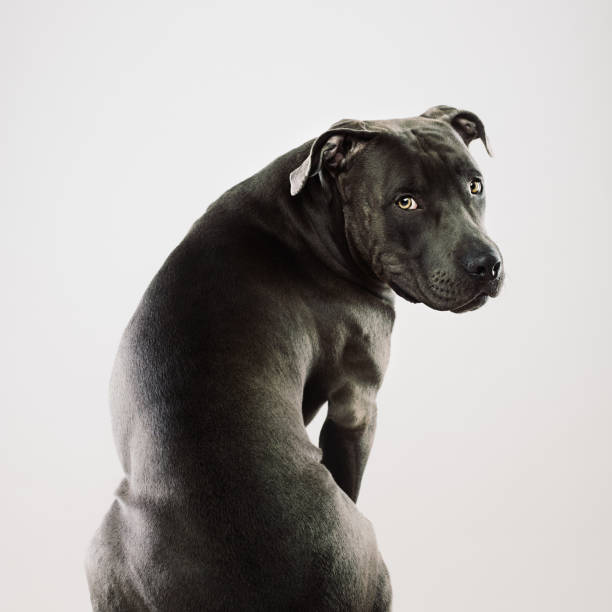Introduction
Welcome to our exploration of why bulldogs seem to have an insatiable appetite for sleep.
If you’re a proud owner of one of these delightful, wrinkly-faced companions, you’ve likely marveled at their ability to snooze away the day without a care in the world.
In this blog post, we’ll delve into the fascinating world of bulldog sleep patterns, uncovering the reasons behind their seemingly excessive need for rest.
Whether you’re a seasoned bulldog owner or considering adding one to your family, understanding their sleeping habits is key to providing them with the best possible care.
So, grab a cozy blanket, settle in with your furry friend, and let’s unravel the mystery of why bulldogs sleep so much.
Get ready to discover insights into their nap behavior, explore factors influencing their sleep, and learn how to ensure your bulldog enjoys a healthy and restful slumber. Let’s dive in!
You Should Know These 15 Reasons Why do Bulldogs Sleep So Much
- Natural Instincts
Bulldogs are descendants of working dogs bred for bull-baiting, a physically demanding activity.
Despite their evolution into beloved companions, bulldogs still retain the instinct to conserve energy through ample sleep.
- Low Energy Breed
Bulldogs belong to the brachycephalic breed category, characterized by their flat faces and compact bodies.
Their physiology typically results in lower energy levels, prompting them to sleep more frequently.
- Digestive Efficiency
Bulldogs have a slower metabolism compared to some other dog breeds.
Their digestive systems are designed to efficiently extract nutrients from food, but this process also contributes to feelings of lethargy and the need for extended rest.
- Muscle Development
Quality sleep is essential for repairing and strengthening muscles, playing a pivotal role in their growth and recovery.
Given their sturdy build, bulldogs require adequate rest to maintain their muscular physique, especially after bouts of physical activity.
- Stress Relief
Bulldogs, like humans, may use sleep as a mechanism to cope with stress or anxiety.
Changes in their environment or routine, such as loud noises or unfamiliar situations, can prompt them to seek solace in sleep.
- Genetic Predisposition
The genetic makeup of bulldogs influences their sleep patterns.
Breeding practices aimed at accentuating certain physical traits may inadvertently contribute to characteristics like increased sleepiness.
- Age Factor
Like all dogs, bulldogs experience changes in their sleep patterns as they age.
For example, puppies need more sleep compared to adult dogs to aid their rapid growth and development.
- Comfort Seekers
Bulldogs are connoisseurs of comfort, known for seeking out plush surfaces and cozy corners for their slumber sessions.
Also Read,
- Why is My Bulldog So Sad? 12 Reasons You Should Know
- What is Blue Nose Pitbull Puppies – A 15-Year Owner’s Perspective
Ensuring they have access to soft bedding and a tranquil environment encourages longer and more restful sleep.
- Health Considerations
Certain health conditions, such as allergies or respiratory issues common in bulldogs, can disrupt sleep patterns.
Addressing these underlying concerns with proper veterinary care can help improve the quality and duration of their sleep.
- Regulation of Hormones
Sleep plays a vital role in regulating hormone levels, including those associated with appetite and stress.
Bulldogs rely on adequate sleep to maintain hormonal balance, which in turn influences their overall well-being.
- Rejuvenation and Vitality
Ultimately, sleep is essential for bulldogs to recharge their batteries and maintain vitality.
By allowing them to rest undisturbed, owners contribute to their overall health and longevity, ensuring they remain happy and content companions for years to come.

Understanding these reasons sheds light on the fascinating world of bulldog sleep behavior, emphasizing the importance of accommodating their natural tendencies and providing a conducive environment for optimal relaxation.
Bulldog Lover Also Reach These Questions Regardings Why do Bulldogs Sleep so Much
What is the average sleep time for bulldogs?
Answer – Bulldogs typically sleep between 12 to 14 hours per day, although individual variations may occur based on factors like age, activity level, and overall health.
What causes bulldogs to snore excessively?
Answer – Bulldogs are brachycephalic breeds with shorter airways, which can lead to snoring due to restricted airflow during sleep.
This anatomical feature contributes to their snoring tendencies.
How can I help my bulldog sleep better at night?
Answer – Creating a comfortable and quiet sleeping environment, providing a cozy bed with adequate support, and establishing a consistent bedtime routine can help promote better sleep for your bulldog.
Are bulldogs prone to sleep disorders?
Answer – Yes, bulldogs, particularly brachycephalic breeds, may be susceptible to sleep disorders such as sleep apnea or excessive daytime sleepiness due to their unique anatomy and respiratory challenges.
Is it normal for bulldogs to nap throughout the day?
Answer – Yes, it’s perfectly normal for bulldogs to take multiple naps throughout the day.
Their low energy levels and preference for relaxation often result in frequent napping behavior.
What should I do if my bulldog’s sleep patterns suddenly change?
Answer – If you notice significant changes in your bulldog’s sleep patterns, such as increased lethargy, restlessness, or difficulty breathing during sleep, it’s essential to consult with a veterinarian to rule out any underlying health issues.
Conclusion
Understanding why bulldogs sleep so much provides valuable insight into their unique needs and behaviors.
By recognizing their natural tendencies and accommodating them with a comfortable environment and consistent routine, you can help ensure your bulldog enjoys restful and rejuvenating sleep.
Remember to prioritize regular veterinary check-ups to address any health concerns that may impact their sleep quality.
Also Read,





One Comment on “Why do Bulldogs Sleep so Much – You Should Know”